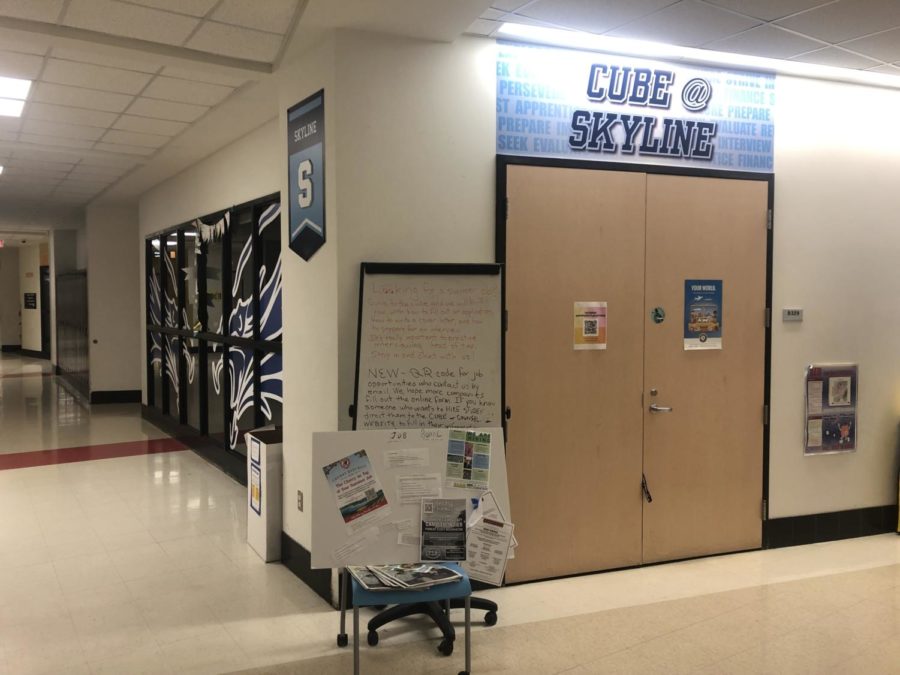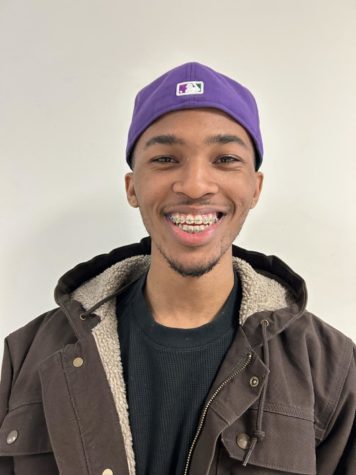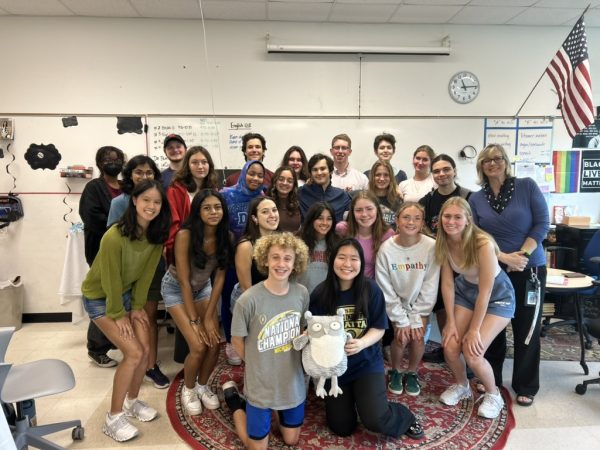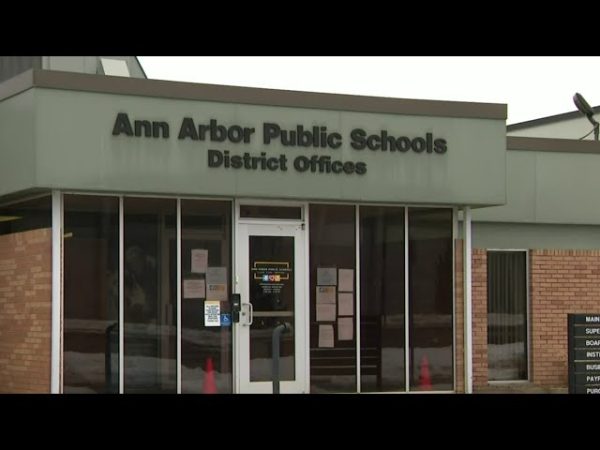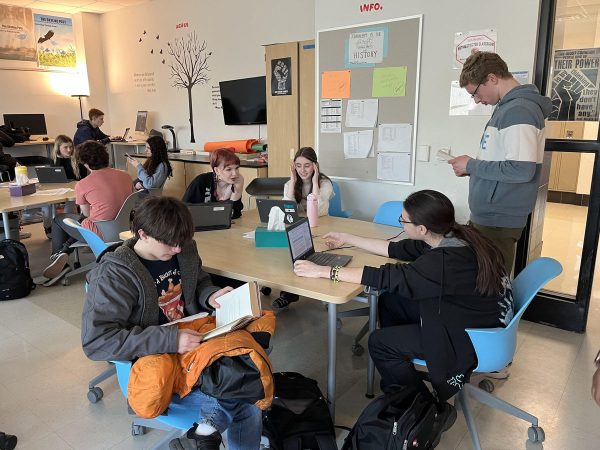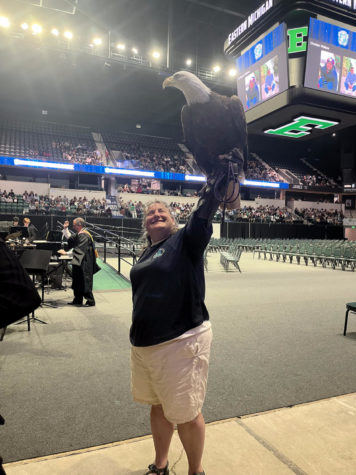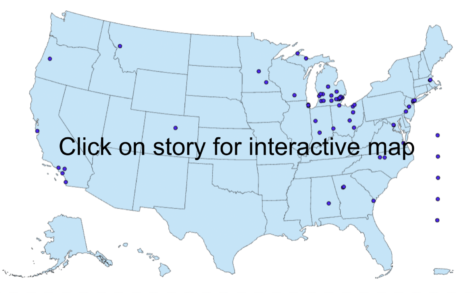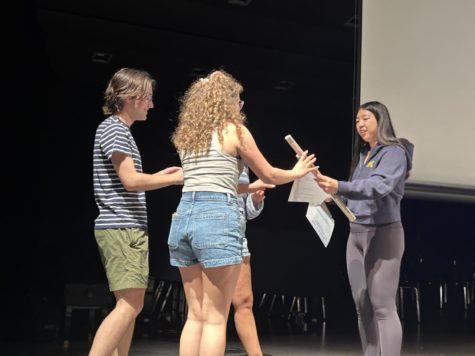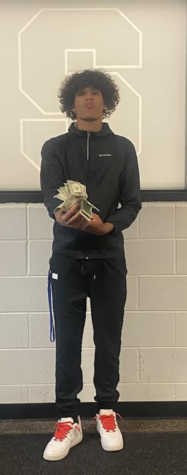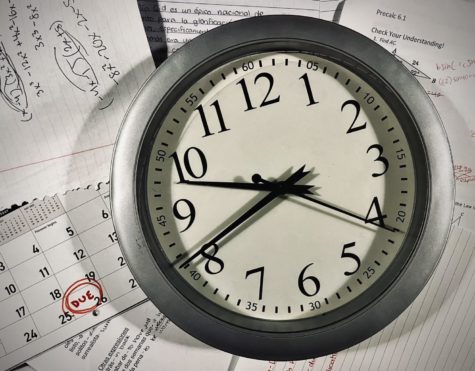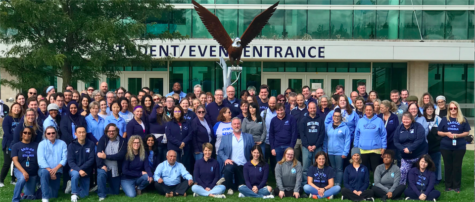Solving Skyline’s CUBE: Inadequate Staffing, Other Issues Limit Students’ Opportunities
Since its inception in 2011, Skyline’s College & Career Center, or “CUBE,” has fluctuated between being a busy operation teeming with students and a relatively empty room with little to no activity. Currently, it exists as a service that is fully operational but underutilized, which has prompted The Skyline Post to ask what are the challenges it faces, who is in charge of the space, and how is it being improved?
Helping students navigate the transition to their college and career life is the CUBE’s top priority. Each year, counselors within the office are tasked with hosting 100+ college admission visits, establishing a building-wide communication system, developing/sustaining a mini-college/career fair and much more.
For example, in February the CUBE held “Washtenaw Wednesdays” which offered several options to interact with Washtenaw Community College including: college applications, scholarship help, and dual enrollment options. Most recently, the CUBE held a Career Technical Education fair that featured apprenticeship programs like FAME USA, which employs undergraduate students to work in the manufacturing industry to help finance their education.
While the CUBE offers many opportunities, a communicative disconnect between the CUBE and students has limited the center’s outreach. According to John Boshoven, one of the three retired CUBE counselors, being visible in a bustling school environment has been an issue. “Students don’t always hear our announcements, see our Schoology messages, or read the school newsletter because there’s lots of other information. We’ve yet to maximize our potential.”
In the future, the CUBE counselors want to implement changes such as planning with students earlier in their high school career and hosting Skytime classes in the office, which they believe will increase their presence and visibility within the school.
Staffing the CUBE has been an ongoing challenge for Skyline. It is currently staffed by retired employees who helped reopen the center back in 2022. Before they arrived, the position had been vacant since 2021. Ann Arbor Public Schools (AAPS) staff offer different opinions as to why.
CUBE staff attribute this vacancy to the job’s payout: “AAPS has chosen to pay a very low rate for the position which has undervalued it,” says Boshoven. “Many highly qualified candidates have declined the job due to its pay.” AAPS lists the position as a full-time support staff job and offers candidates an hourly rate between $16.50 and $22.01.
AAPS Human Resources Director John Randle is aware of this situation.
“Like many positions today, the College/Career Coordinator role is difficult to fill,” commented Randle. “Especially considering the demand for individuals that have that particular skill set…the classification, job description, and compensation is something that we are currently focusing on and expect to have much better success in the near future.” As of this article’s posting in June of 2023, the plan and timeline to improve the position’s condition has yet to be announced.
When assessing the CUBE’S performance, equity is a significant factor many staff and students consider. When asked to comment on AAPS’s college and career services in this regard, Superintendent Jeanice Swift responded, “Our priority is that every student has choices and options beyond high school and has all the support needed to be ready to make wise choices. This is what equity is, that every child has access and opportunity and that those gaps are closing so that students have a wide variety of choices when they get to sophomore/junior/senior year.”
Swift noted programs such as Equal Opportunity Schools and Rising Scholars as a few district-wide tools AAPS utilizes to promote equity of access to post-secondary planning and support, stating that these opportunities “increase student representation across the spectrum in high-level courses, which is a key indicator of students having the choice of higher education.”
There is a possibility programs like Rising Scholars may partner with centers like the CUBE in the future. “We do many of the same things [as the CUBE] in the college readiness area,” says Tonya Whitehorn, Skyline’s Rising Scholars coordinator. “I can envision the CUBE teaming up with our sophomore and junior scholars, especially in the realm of college visits and the students’ selection process.” The question remains: will collaboration between these two spaces foster more equity in Skyline’s and the district’s college and career services?
As of now, the CUBE’s current trio of counselors plan to return for the 2023-2024 school year. Awaiting their help will be students like Jae Drake (‘24) who plans to begin the college application process next year. “I think before, it wasn’t well known,” Drake said. “Now that there’s counselors in it, I definitely feel like it will become bigger and more known to the student body.”
Moving forward, as the CUBE continuously adjusts its approach to best serve students’ college and career needs, the most important thing that Mr. Boshoven and his team want students to know is that they are here to help.
Your donation will support the student journalists of Skyline High School. Your contribution will allow us to cover our annual website hosting costs.

